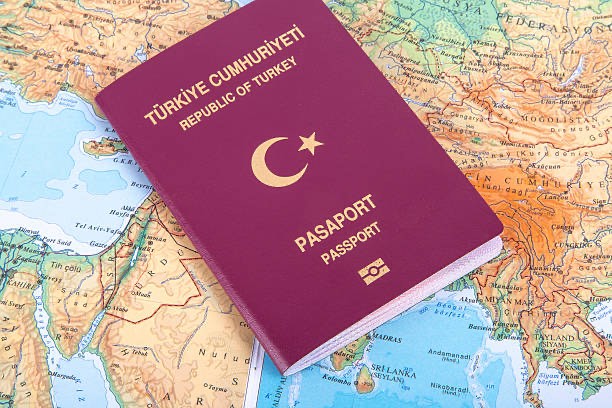
En Değerli Varlığınızı Korumak: Kazanılmış Türk Vatandaşlığı Nasıl Kaybedilebilir?
Türk Vatandaşlığı Geri Alınabilir mi?
Vatandaşlığın Kaybedilmesinin Yasal Gerekçeleri (5901 Sayılı Türk Vatandaşlık Kanunu)
|
|
|
|
|
|
|
|
|
|
|
|
|
|
|
|
Yasal Süreç: Bu Anlık Bir Karar Değildir
-
Dava Açma Süresi: Dava, kararın resmi tebliğinden itibaren 60 gün içinde açılmalıdır. -
Yüksek Risk: Bu basit bir itiraz değildir. Devletin kendi kararını savunacağı karmaşık bir hukuki savaştır. Uzmanlaşmış bir hukuk bürosundan profesyonel hukuki temsil kesinlikle gereklidir.
Avukatın Vazgeçilmez Rolü
-
60 günlük süre içinde karara itiraz etmek için derhal Danıştay'da bir dava açmak. -
Dava devam ederken kararın uygulanmasını önlemek için yürütmenin durdurulmasını talep etmek. -
Devletin delillerine meydan okuyarak ve vatandaşlıktan çıkarılma için yasal gerekçelerin karşılanmadığını kanıtlayarak güçlü bir hukuki savunma oluşturmak. -
Bu üst düzey yargı sürecinin her aşamasında sizi temsil etmek.
Benzer İçeriklerimize Göz Atın:
- 2024 Yılında Gayrimenkul Yatırımı Yoluyla Türk Vatandaşlığı Almak İçin Kapsamlı Rehber
- Türkiye'de Yabancılar İçin Mülk Edinme Rehberi: Adım Adım Hukuki Süreç
- Türkiye'de Oturma İzni (İkamet Tezkeresi) Nasıl Alınır? Yabancılar için Kapsamlı Rehber 2024
- Taşınmaz Yatırımı Yoluyla Türk Vatandaşlığı Kazanımına İlişkin Kapsamlı Rehber
- Türkiye'de Yabancılar İçin Mülk Edinme Kapsamlı Rehberi
- Türkiye'de Yabancılar İçin Gayrimenkul Alımı: Adım Adım Kapsamlı Rehber
- Yatırım Yoluyla Türk Vatandaşlığı: Kapsamlı Rehberiniz
- Türkiye'de Tüketici Hakları: Ayıplı Mallarla Karşılaşan Yabancılar İçin Bir Rehber
- Türkiye'de Yabancılar İçin Alacakların Tahsili: İcra Takibi Süreci
- Türkiye'de Vergi Hukuku: Yabancılar İçin Vergi Yükümlülükleri Rehberi
- Türkiye'de Tıbbi Uygulama Hataları (Malpraktis) ve Yabancı Hasta Hakları
- Türkiye'de Yabancılar İçin Vasiyetname Hazırlama: "Saklı Pay" Kuralını Anlamak
- Türkiye'de İsim Denklik Belgesi: Yabancılar ve Çifte Vatandaşlar İçin Bir Rehber
- Türkiye'de Yabancılar İçin Alacakların Tahsili: İcra Takibi Süreci
- Türkiye'de Yabancılara Karşı Açılan Tahliye Davaları: Kiracı Hakları ve Yasal Süreçler
- Yabancı Mahkeme Kararlarının Türkiye’de Geçerli Hale Getirilmesi: Tanıma ve Tenfiz Süreci
- Türkiye’de Yabancıların Karıştığı Trafik Kazaları ve Hukuki Süreç
- Kazanılmış Türk Vatandaşlığının Kaybedilmesi: Hukuki Gerekçeler
- Türkiye'de İşten Çıkarılan İşçilerin Tazminat Hakları
- Türkiye’de Yabancıların Tahkim Yoluyla Uyuşmazlık Çözümü
- Yabancılar Açısından Türkiye’de Ticaret Hukuku ve Şirketler Hukuku
- Türkiye’de Yabancıların Çalışma İzni Reddi ve İtiraz Süreci
- Yabancılar İçin Türkiye’de İdari Para Cezalarına İtiraz Yolları
- Türkiye’de Yabancıların Vekaletname Çıkarması: Hukuki Gereklilikler
- Yabancılar İçin Türkiye’de Boşanma ve Nafaka Davaları
- Türkiye’de Yabancıların Ceza Hukuku Açısından Hakları ve Sorumlulukları
- Yabancıların Türkiye’de Adil Yargılanma Hakkı
- Türkiye’de Kat Mülkiyeti Kanunu ve Yabancılar İçin Önemi
- Yabancıların Türkiye’de Arsa ve Tarla Satın Alırken Karşılaştığı Hukuki Kısıtlamalar
- Miras Hukuku: Türkiye’de Yabancılar İçin Veraset ve İntikal İşlemleri

 Türkçe
Türkçe  İngilizce
İngilizce  Almanca
Almanca Rusça
Rusça
